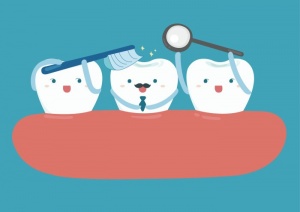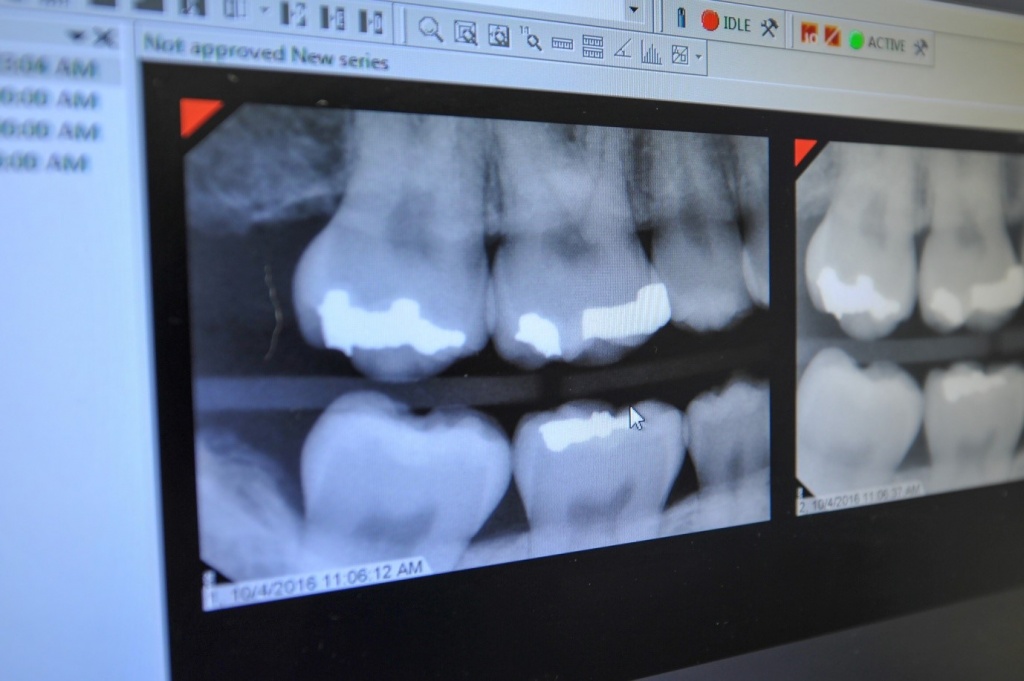Answers to 5 Common Dental Health Questions
Good oral and dental hygiene can help prevent bad breath, tooth decay and gum disease, as well as help you keep your teeth as you get older. Healthy teeth and gums are so important and can easily be achieved. New research suggests that the health of your mouth mirrors the condition of your body as a whole. Below are answers to 5 of the most common dental health questions with regards to healthy smile.

What Causes Tooth Sensitivity?
In healthy teeth, a layer of enamel protects the crowns your teeth, the part above the gum line. Under the gum line a layer called cementum protects the tooth root. Underneath both the enamel and the cementum is dentin. Dentin is less dense than enamel and cementum and contains microscopic tubules. When dentin loses its protective covering of enamel or cementum these tubules allow heat and cold or acidic or sticky foods to reach the nerves and cells inside the tooth. Dentin may also be exposed when gums recede. Tooth sensitivity can be triggered by hot, cold, sweet, or even acidic foods and drinks.
What Foods Causes Tooth Decay?
Starchy and sugary foods are the most apt to leave residue that decay causing bacteria feed on. The bacteria, in turn, give off acids that eat into tooth enamel. Drinking carbonated sugary drinks is possibly one of the worse things you can do to your teeth. Fizzy drinks essentially coat your entire mouth in tooth-decaying acid. All types of candy are tough on your teeth, but sour candy can be the most damaging to your teeth. Sour candies contain a unique type of acid that eats away at your enamel, and they also tend to be chewy and will stick to your teeth. Citrus fruits are also full of acid that will erode your tooth enamel.

How Do I Know If My Gums Are Healthy?
It’s important that you go to all of your regular cleanings because your dentist is the only one who can properly analyze the health of your gums. Below are a few signs of gum issues:
- Constant bad breath or bad taste in your mouth
- Gums that bleed during brushing or flossing
- Gums that are red, puffy or swollen, or tender
- Teeth that look longer because your gums have receded
- Loose teeth
If you’re showing any of these symptoms, you should contact your dentist immediately.

How Do I Get Rid of Bad Breath?
Bad breath can be embarrassing and in some cases may even cause anxiety. Some people worry too much about their breath even though they have little or no mouth odor, while others have bad breath and don’t know it. Below are a few ways to get rid of bad breath.
- Brush your teeth after you eat
- Floss at least once a day
- Use a tongue scrapper
- Drink water to avoid dry mouth
- Regularly get a new toothbrush
- Schedule regular dental checkups
How Often Do I need to Visit a Dentist and Get X-rays?
This depends on the state of your teeth and gums. In general, most people should go to the dentist at least once a year and possibly every six months for a cleaning and to get checked for cavities. If your dentists say that you may be prone to gum disease or tooth decay, you may need to go more often. Most dentists recommend having X-rays taken about one a year.

